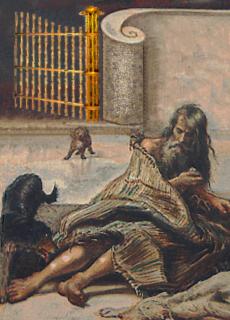XXVI SUNDAY IN ORDINARY TIME: Mark 9:41
The disciples must be like little children, in their simplicity and innocence. However, like little children, they can easily stumble upon an obstacle and fall. The goodness of the children is that they rush into the protection of their mother/ father’s arms.
In this Sunday’s gospel, Jesus concentrates on those who put an obstacle in the path of the “little ones”, scandalizing them and causing them to lose their innocence; and he uses extremely strong language to denounce them and to state the disgrace brought upon themselves by their own actions.
Comparing his disciples to little children, Jesus is speaking about both of them, and curses all those who cause them to fall and lose their way:
“it were better for him that a millstone were hanged around his neck, and he were cast into the sea.” (Mk 9:41).
Throughout the ages, children have been abused in all kinds of ways. In many societies, in old times, the father could dispose of his children at will. In fact, children had no rights and they should surrender in total obedience to their parents. In many old societies, children could be sacrificed to the gods, in order to placate them and obtain their good will and their blessings.
Humanity has come a long way from those cruel times, and Jesus’ teaching and attitude were one the main factors in that change. Today, we have a greater awareness of the children’s dignity and rights. However, in spite of that awareness, the children still suffer plenty of abuse in today’s society. And most of the times that abuse comes from where they less expected. The Church is paying dearly for the sin (crime) of so many who have sexually abused children; and nothing can justify that, even when we know that the problem of child abuse is far bigger in the wider society in which we live than what we find in the Church.
Jesus stands up against all kinds of abuse, threatening the culprits with terrible judgment. His words are a warning to all of us: we must protect the children from all kinds of predators, who are always ready to destroy them.





